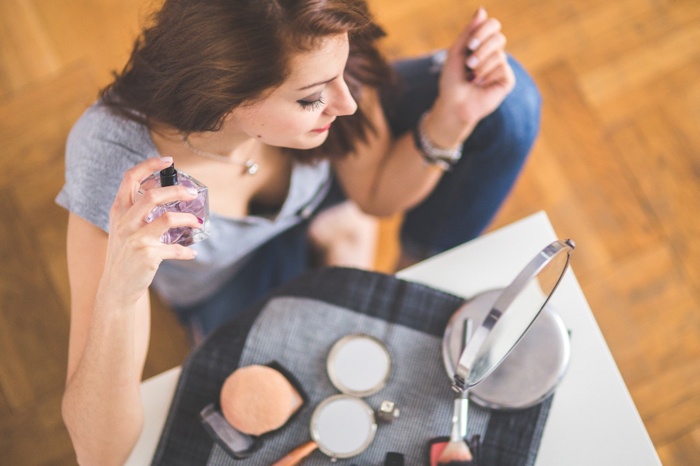
In celebration of Earth Day 2019, we’re thinking about our planet as well as our skin.
Earth Day is all about embracing nature, ending pollution, protecting endangered species, and above all, spreading awareness of human activities that threaten the well being of our planet.
But these are lofty ideas and sometimes they can leave us feeling a little overwhelmed. After all, what can one person do?
We’ve got some ideas for how you can make changes—in the realm of skin care, of course—that can help reduce pollution and protect the planet.
5 Steps to Keep Your Skin Care Environmentally Friendly
To make your skin-care routine more Earth-friendly, take the following steps:
1. Avoid Products with Microbeads
These little plastic beads may be present in so-called “exfoliating” body washes, face cleansers, toothpastes. The beads aren’t natural scrubbers, but plastic ones made from the chemical polyethylene.
This is a chemical that’s not good for the environment. It accumulates in the soil, resulting in poor absorption of water and nutrients. It can hang around for up to 1,000 years, inhibiting the breakdown of other biodegradable materials around it and making it harder to grow crops.
These microbeads can also accumulate in our waterways, traveling down the drain and on into rivers, lakes, and oceans, even making their way back into our drinking water. In a 2014 study, researchers found microbeads in 25 of the 34 water treatment plants studied. Small aquatic organisms often mistake them for food, which can eventually lead to the beads circulating back in our food system.
The U.S. banned the manufacture of rinse-off cosmetics containing plastic microbeads. They are to be phased out by July of this year (2019).
Meanwhile, to be sure you aren’t using any, take these steps:
- Look for anything saying “microbeads” on the product label
- Look for polyethylene or polypropylene in the ingredient list
- Check the products you currently have against the list at “Beat the Microbead,” which will tell you if your product has microbeads
- Check out this page on Mother Jones, which has another list of products with microbeads
2. Avoid Products with Triclosan
This is an anti-bacterial agent that was used in many makeup powders and skin care products to keep them free of microbes. It’s also a hormone disruptor that has been found in alarming quantities in the Great Lakes.
According to a 2016 study, triclosan is toxic to marine life, reducing lifespan. Other research shows that Triclosan is one of the most prevalent contaminants not removed by typical wastewater treatment plants.
In a U.S. Geological Survey study of 95 different wastewater contaminants in U.S. streams, Triclosan was one of the most frequently detected compounds at some of the highest concentrations.
This chemical is found in antibacterial soaps and detergents, toothpastes and tooth whitening products, antiperspirants and deodorants, shaving products, creams, and color cosmetics. Look for “Triclosan” or “triclocarban” on the ingredient list.
3. Avoid Products with Parabens
These are preservatives that have not only been linked to breast cancer, but are also believed to be hormone disruptors in dolphins and other marine mammals.
In a 2015 study, researchers found six parabens and four common metabolites of parabens in 121 tissues samples from eight species of marine mammals. Methyl paraben was the predominant one in the majority of tissues analyzed, and the highest concentrations were found in the livers of bottlenose dolphins from Sarasota Bay, Florida.
To avoid products with these ingredients, look for these signs on your products:
- “Paraben-free” on the product label
- Read the ingredient list and watch out for methylparaben, ethylparaben, propylparaben, butylparaben, and other ingredients ending in –paraben
4. Buy from Conscientious Companies
There are a lot of choices today when it comes to beauty products. Some companies are busy doing business like they always have, but some care about producing products that don’t harm the planet, or your skin, for that matter.
Look for companies that are careful about the ingredients they use. These companies will use organic and non-toxic ingredients like natural butters and oils. They will not use toxic ingredients like parabens, phthalates, and formaldehyde-releasing preservatives.
Note: CV Skinlabs uses only safe ingredients!
5. Take a Break from Makeup Now and Then—and Think Twice About Beauty Deliveries
The less we use, the less there is to pollute the Earth, so consider going without makeup now and then, and think twice before signing up for those regular beauty deliveries. It’s fun to try new products, but if you don’t really need them, they’re likely to just land in the trash eventually.
Going without makeup for a day can also be good for your skin!
How do you green up your skin care routine?
Sources
Beyond Pesticides. (n.d.). Triclosan: Environmental Fate and Effects. Retrieved from https://www.beyondpesticides.org/programs/antibacterials/triclosan/environmental-effects
Han, J. (2016). Triclosan (TCS) and Triclocarban (TCC) cause lifespan reduction and reproductive impairment through oxidative stress-mediated expression of the defensome in the monogonont rotifer (Brachionus koreanus). Comp Biochem Physiol C Toxicol Pharmacol, 2016(185-186), 131-137. doi:10.1016/j.cbpc.2016.04.002
NY State Office of the Attorney General. (2015). Discharging Microbeads to Our Waters: An Examination of Wastewater Treatment Plants in New York. Retrieved from NY State Office of the Attorney General website: http://www.ag.ny.gov/pdfs/2015_Microbeads_Report_FINAL.pdf
Xue, J. (2015). Elevated Accumulation of Parabens and their Metabolites in Marine Mammals from the United States Coastal Waters. Environ. Sci. Technol.,, 49(20), 12071–12079. doi:10.1021/acs.est.5b03601

